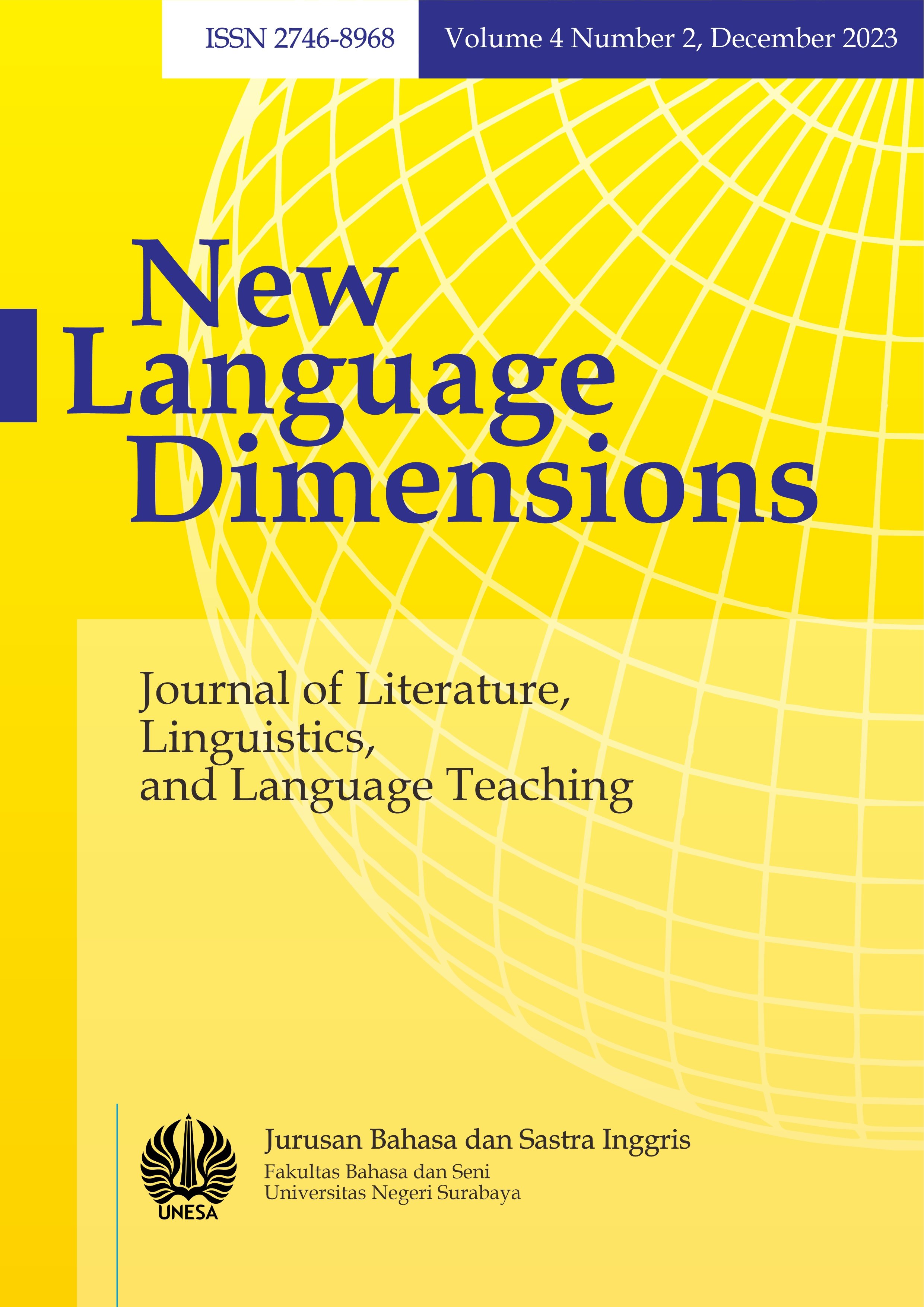The Effect of Teacher-Made Vocabulary Exercises in Instagram Stories on Students' Vocabulary Achievement
DOI:
https://doi.org/10.26740/nld.v4n2.p90-101Keywords:
Instagram stories, vocabulary achievement, TELLAbstract
This research aimed to test whether or not teacher-made vocabulary exercises in Instagram stories have a significant positive effect on students’ vocabulary achievement. Therefore, a quasi-experimental research design was applied. The researcher conducted this study during the Ramadhan period with 48 students as the sample participants. They were divided into two groups, experimental and control groups. The researcher taught each group in about two meetings, and most of the time was dedicated to the students to learn vocabulary. They learned vocabulary by doing an exercise provided by the researcher. However, one thing that made them different was the treatment. In learning vocabulary, teacher-made Instagram stories were used as the treatment for the experimental group, while the control group only used the regular tests. After that, all groups did a post-test in the form of multiple-choice. Based on the post-test result, the experimental group gained a mean score of 61.25 and 76.87 for the control group. Then, the researcher used SPSS to analyze the data by employing an independent sample t-test to make a valid conclusion. The result showed that the value of Sig. 2-tailed was lower than 0.05 (0.001<0.05), indicating a significant difference in mean score between the experimental and control group. However, the t value was negative (-3.476). It means that there is no significant positive effect of using teacher-made vocabulary exercises in Instagram stories on students’ vocabulary achievement.
Keywords: Instagram stories, vocabulary achievement, TELL
Downloads
References
Aloraini, N. (2018). Investigating Instagram as an EFL learning tool. Arab World English Journal (AWEJ) Special Issue on CALL, (4). 174-184. https://dx.doi.org/10.24093/awej/call4.13
Alqallaf, A. W., & Ahmed, M. O. (2022). Vocabulary size and depth of knowledge: A study of Bahraini EFL learners. International Journal of English Linguistics, 12(1). https://doi.org/10.5539/ijel.v12n1p58
Ary, D., Jacobs, L. C., Razavieh, A., & Ary, D. (2010). Introduction to research in education (8th ed). WARDSWORTH Cengage Learning.
Gerald, B. (2018). A brief review of independent, dependent, and one sample t-test. International Journal of Applied Mathematics and Theoritical Physics, 4(2), 50-54. https://doi.org/10.11648/j.ijamtp.20180402.13
Habibah, A., Asmawati, N., Fitriningsih., Nurdin. (2021). The effect of Instagram in learning English vocabulary. Datokarma English Education Journal, 2(1). https://doi.org/10.24239/dee.v2i1.26
Hughes, A. (2003). Testing for language teachers (2nd ed.). Cambridge University Press
Lumbanraja, L. H. (2017). Analisis tingkat kesukaran dan daya pembeda pada butir tes soal ujian tengah semester Bahasa Indonesia kelas XII SMA Negeri 7 Medan tahun pembelajaran 2016/2017. [Doctoral dissertation, UNIMED). Digital Repository Medan State University. http://digilib.unimed.ac.id/id/eprint/24522
Martarini, N. M. L., Yulianti, K. A. R., & Sastaparamitha, N. N. A. J. (2021). Media social dan pembelajaran: study efektifitas Instagram dalam pembelajaran Bahasa Inggris. Jurnal Onoma: Pendidikan, Bahasa, dan Sastra, 7(2), 375-382. https://doi.org/10.30605/onoma.v7i2.1227
Napoleon. (2022). Instagram users in Indonesia. NapoleonCat https://napoleoncat.com/stats//instagram- users-in-indonesia/2022/02/
Newberry, C. (2023, January 24). 35 Instagram stats that matter to marketers in 2022. Hootsuite. https://blog.hootsuite.com/instagram-statistics/
Resyadi, H. (2020). Teachergrams: A new trend of teaching and learning English. IDEAS: Journal on English Language Teaching and Learning, Linguistics and Literature, 8(1), 154-163. https://doi.org/10.24256/ideas.v8i1.1323
White, H., & Sabarwal, S. (2014). Quasi-experimental design and methods. Methodological briefs: impact evaluation, 8(2014), 1-16. https://www.unicef-irc.org/KM/IE/img/downloads/Quasi-Experimental_Design_and_Methods_ENG.pdf
Downloads
Published
Issue
Section
 Abstract views: 349
,
Abstract views: 349
, PDF Downloads: 298
PDF Downloads: 298











